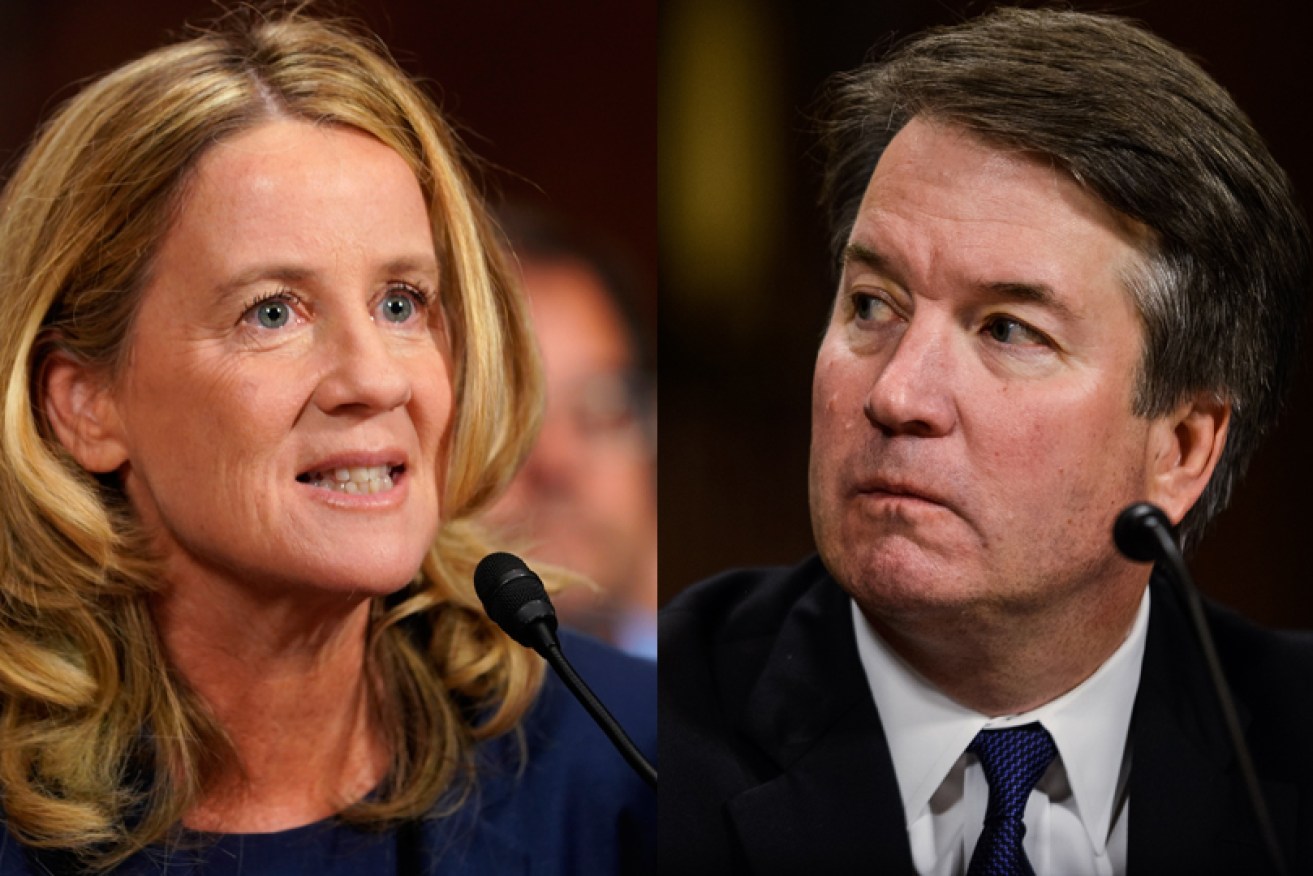Back in the noughties, as the leader of a US magazine editors trade group, I met a few times with Senator Susan Collins, who headed a committee that oversaw US postal rates (a big deal in the magazine business).
Collins, a Republican from the cold, starkly beautiful state of Maine, struck me as a bland, slow-talking and thoughtful lawmaker well versed in mail arcana, and impressively (or maddeningly) thorough when it came to making a decision.
That’s the same senator I watched announce she would vote to send Brett Kavanaugh to the US Supreme Court, guaranteeing his bitterly fought over appointment. This was a very long way from talking about stamp pricing.
It was almost touching to see Senator Collins, in her 45-minute televised speech from the Senate floor, walk through deliberations: her three hours of personal meetings with Mr Kavanaugh, reading 1600 pages of legal decisions and analysis, poring over last week’s FBI investigation, weighing the various media charges against him of excessive drinking, lying, sexual assault and intemperance.
On the law, Senator Collins concluded that Mr Kavanaugh would be a fine justice, and she wasn’t worried he’d overturn abortion rights or cause sick people to lose their insurance. As for the claims that he assaulted a teenage girl while he was in high school, Senator Collins said she was moved by Dr Christine Blasey Ford’s story, but the lack of corroboration was insurmountable.
“Certain fundamental legal principles about due process, the presumption of innocence and fairness do bear on my thinking, and I cannot abandon them,” Senator Collins said. “We will be ill-served in the long run if we abandon the presumption of innocence and fairness.”
Senator Collins’ methodical deliberations were impressive, and exactly what senators ought to do. But by the time she finished, the Kavanaugh case was already about something far bigger than one justice.
With her Yankee sense of fairness, Senator Collins isn’t wrong about the “presumption of innocence and fairness”. But Mr Kavanaugh’s loss of liberty was never at stake.
This wasn’t a trial – it was a job interview. I’ve conducted many, and just a hint of what Mr Kavanaugh was accused of would get any job candidate in the private sector bounced. Ask any boss.
In his aria of outrage before the Senate panel, Mr Kavanaugh tried to reset that frame. But as the debate moved midweek from Dr Ford’s accusations to Mr Kavanaugh’s temperament and partisan paranoia, he shifted again, this time apologising for his Senate testimony in an essay in the Wall Street Journal (which, it’s worth noting, is owned by Trump supporter Rupert Murdoch). Will he apologise, one wonders, after some intemperate ruling on the nation’s highest court?
Republicans, meanwhile, kept whinging about “process,” how the Democrats had hid Dr Ford’s allegations until late in the game so as put off the nomination until after the November elections. On the other side, Democrats insisted the GOP was never interested in finding out the truth about Mr Kavanaugh, ignoring witnesses and having to be dragged into the cursory FBI “investigation” last week.
Into that, like sand in a poisoned oyster, has accreted all manner of broader issues: white male privilege, anti-white male backlash, rape culture, judicial temperament, electoral strategy, ’80s teen drinking, Yale fraternities, even the band UB40.
How much of that will matter going forward will start to shake out on November 6, when Americans go to polls for mid-term elections. At bottom, though, is the inescapable sense that Mr Kavanaugh’s supporters in the Senate chose to ignore and minimise Dr Ford’s accusations. They said she was credible (“a disaster for Republicans,” intoned one anchor on the GOP-supporting Fox network minutes after her testimony), but then went with their man.
Senators like Collins were smart to invoke the stuff about innocence and due process – notions at the core of every American’s sense of right and wrong. But they wilfully skirted the established legal fact that testimony is evidence; juries and judges make decisions about it every day.
On the very same day Senator Collins spoke, a jury in Chicago convicted a city cop of second-degree murder in the shooting death of black teen in 2014. Jurors had seen dash cam video of the shooting, then listened to the officer’s tearful testimony trying to explain why he fired 16 shots.
“We just didn’t buy it,” one juror explained.
Meanwhile, the bar that the GOP set in the Kavanaugh case make it impossible for any woman, decades later, to prove a case of assault or harassment.
Which, it seems clear, is where they want it.










